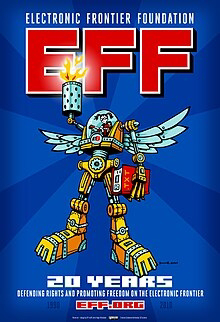Net Neutrality: Still a Battle Worth Fighting?
In the ever-evolving landscape of the internet, net neutrality feels like a battle cry from a bygone era. Yet, its echoes resonate deeply, reminding us of the fundamental right to a free and open web. Is net neutrality still relevant in 2024?
Absolutely. Here are some reasons why:
The Stakes Remain High:
Imagine an internet where your ISP, the gatekeeper to digital information, can manipulate the flow of data. Your ISP, and others could do some or evan all of the following list
○Throttle certain websites and services: Slow down your access to streaming platforms like Netflix or Hulu, while prioritizing their own sponsored content.
○Create paid fast lanes: Offer premium tiers for faster access to specific websites, effectively creating a digital two-tier system where the wealthy have priority.
○Block or censor content: Restrict access to information that goes against their interests or political beliefs.
This isn't a far flung future; it's a potential reality without net neutrality. A controlled internet stifles innovation, limits competition, and undermines the democratic principles of access to information.
The Fight Continues:
While the FCC repealed net neutrality rules in 2017, the battle is far from over. Grassroots movements, tech giants, and even some lawmakers are pushing for its reinstatement. Recent court rulings have chipped away at the repeal, suggesting legal avenues for its resurgence.
Why We Must Keep Fighting:
The internet has become the backbone of our lives, powering education, communication, commerce, and entertainment. A fair and open internet is critical for:
○Economic growth: Small businesses and startups rely on a level playing field to compete online. Without net neutrality, dominant ISPs could favor their own services, stifling innovation and competition.
○Free speech and access to information: A controlled internet can easily become a tool for censorship and manipulation. Protecting net neutrality safeguards our right to access diverse viewpoints and engage in open discourse.
○Transparency and accountability: An open internet allows us to hold governments and corporations accountable. Without it, powerful entities could control the flow of information and suppress dissent.
Taking Action:
The fight for net neutrality is far from over. Here's how you can contribute:
○Contact your elected officials: Urge them to support legislation that restores net neutrality protections.
○Stay informed: Follow organizations like the Electronic Frontier Foundation, Fight for the Future, and Free Press for updates and ways to get involved.
○Spread the word: Talk to your friends, family, and colleagues about the importance of net neutrality.
Net neutrality is more than just a technical policy; it's a fundamental principle of a free and open society. By staying informed and engaged, we can ensure that the internet remains a democratic space where everyone has equal access to information and opportunity.
So, join the fight. Let's keep the internet open, free, and fair for everyone.



Comments